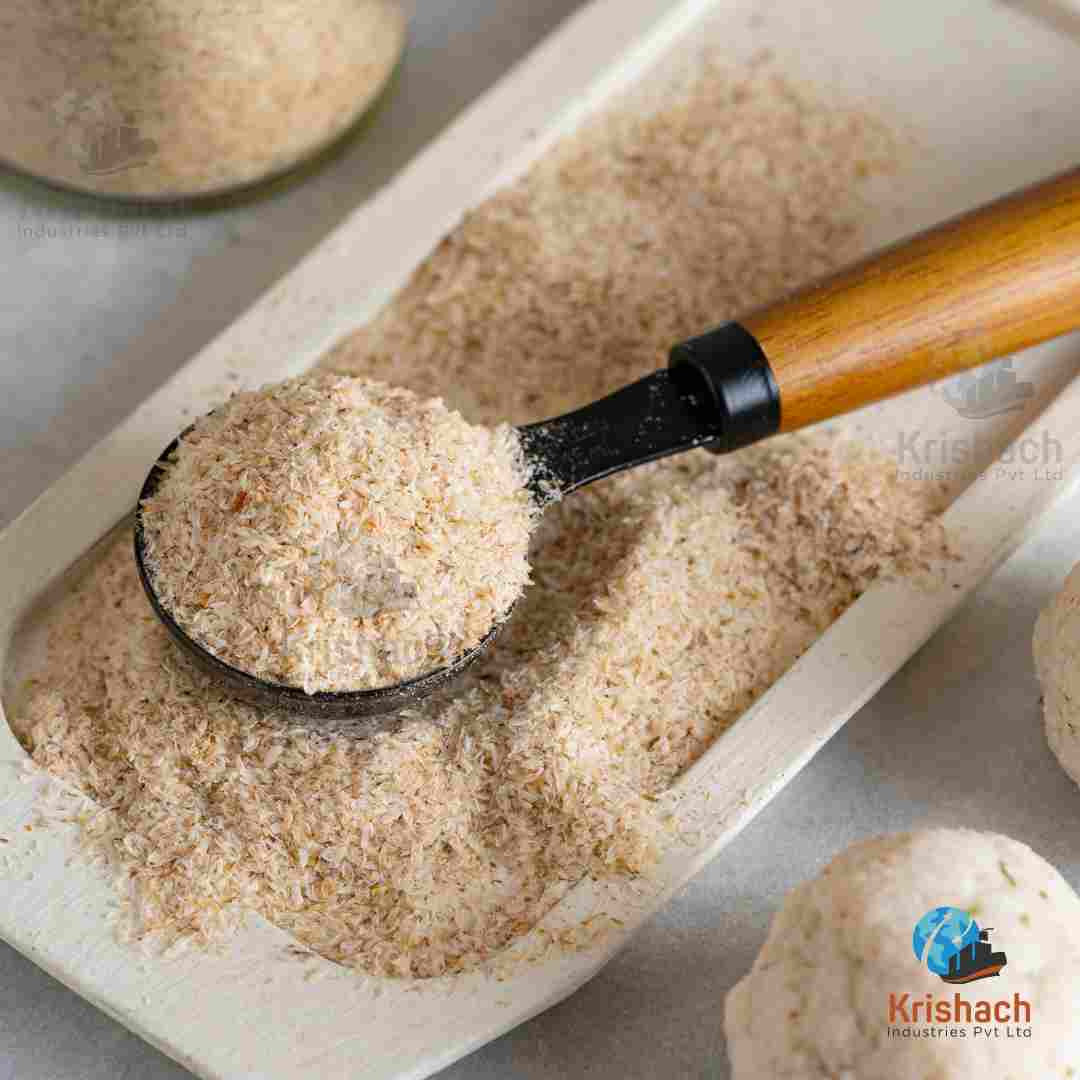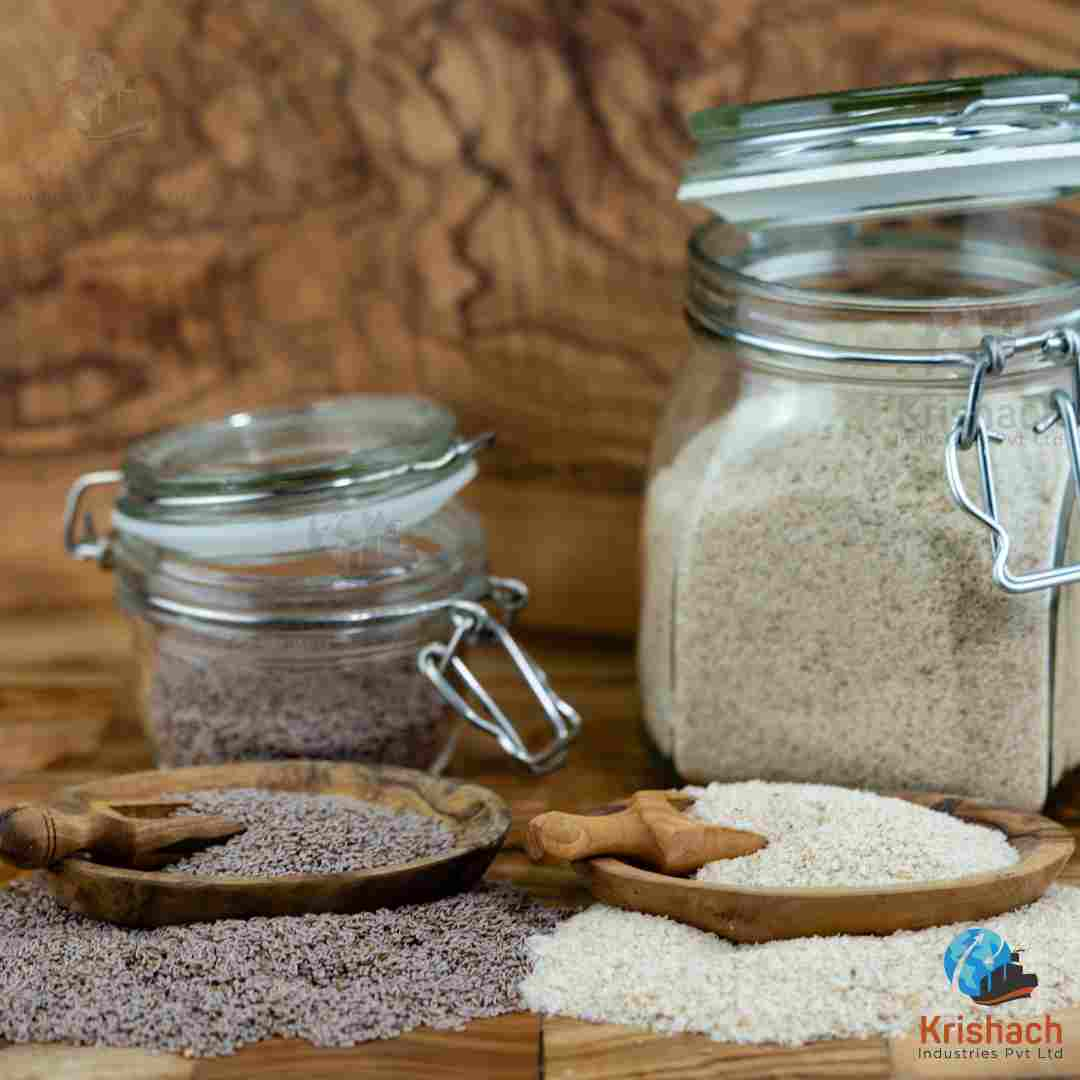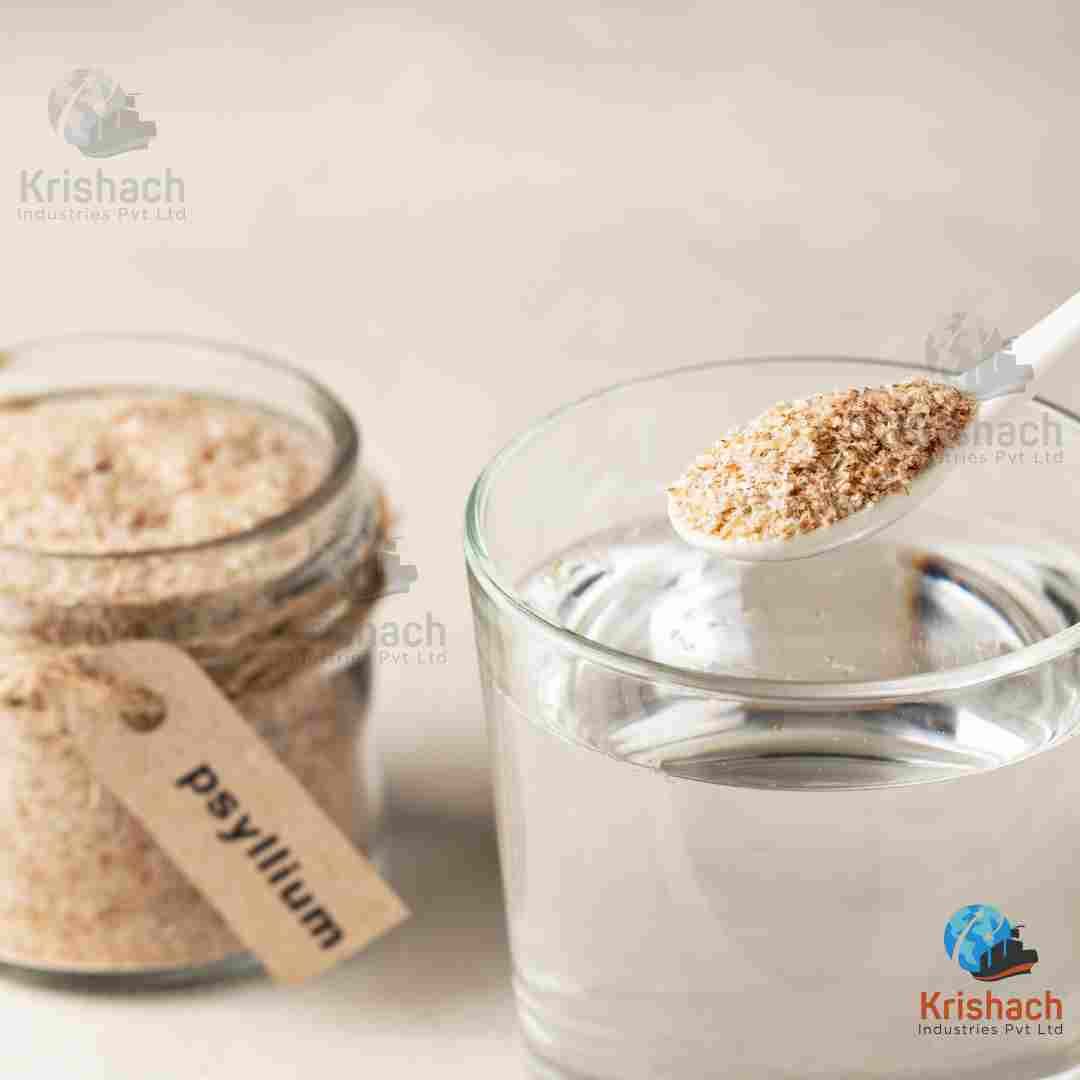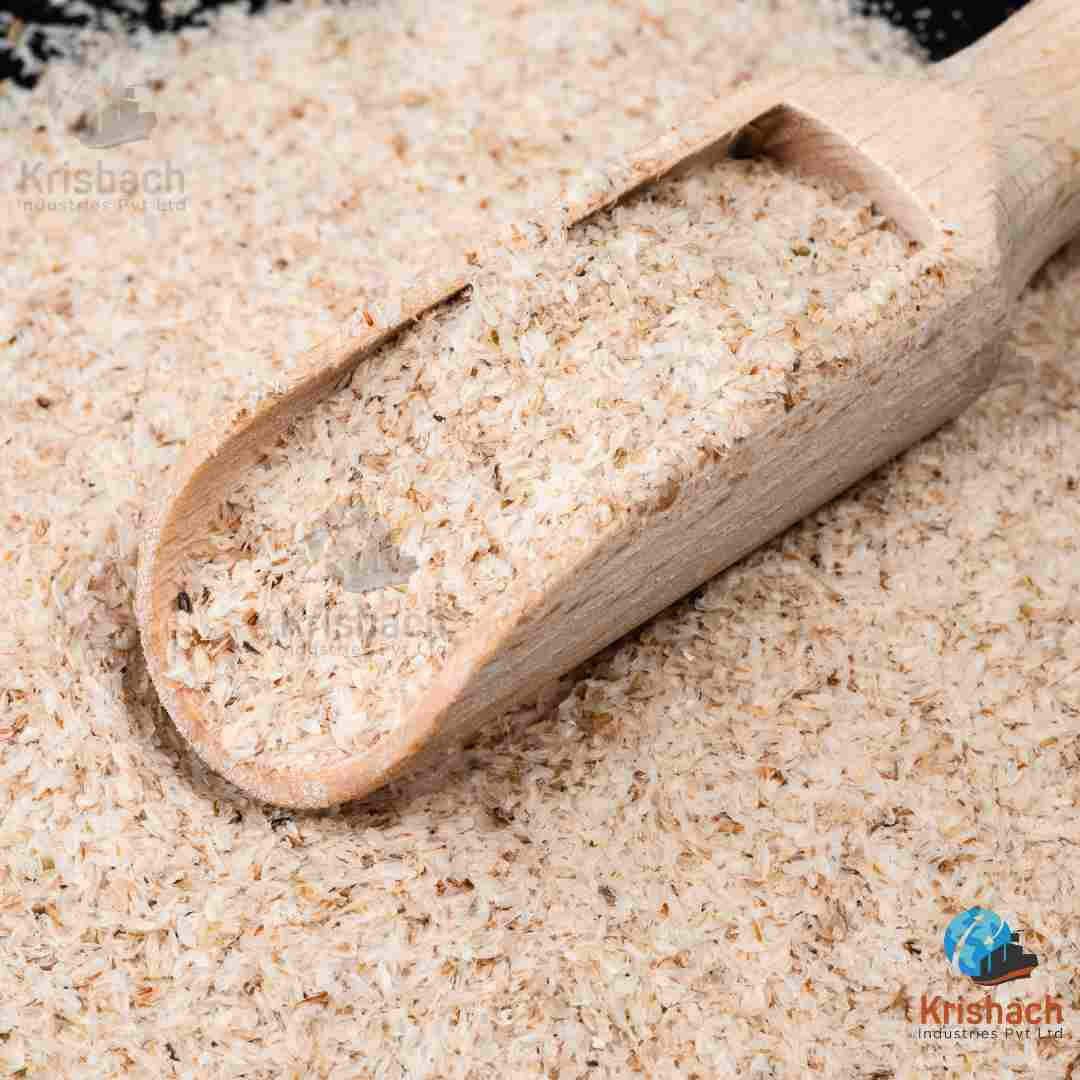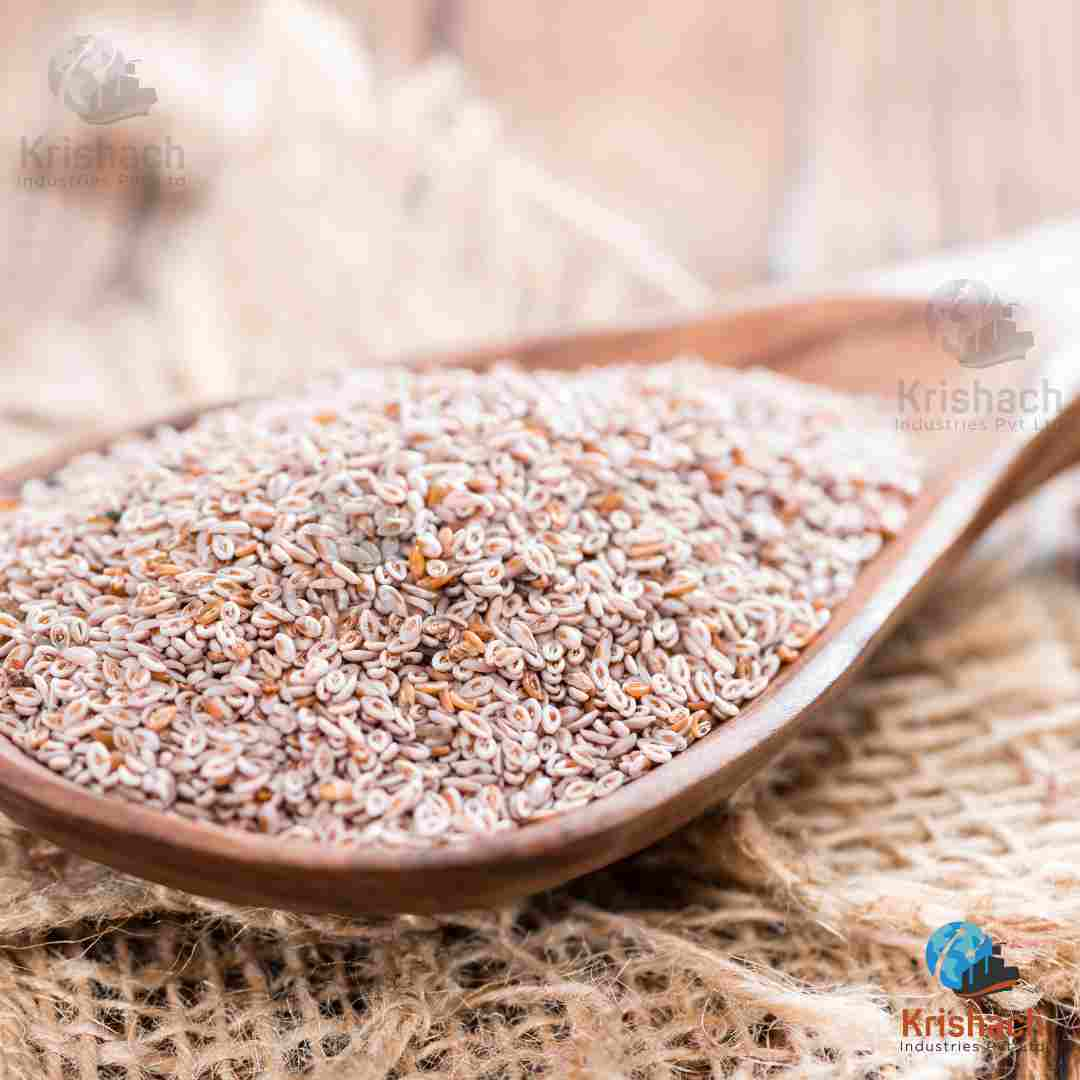Psyllium husk is a natural, fiber-rich substance derived from the seeds of the Plantago ovata plant, which is primarily grown in India. The husk, which is the outer coating of the seed, is known for its high soluble fiber content and is widely used as a dietary supplement to promote digestive health. Psyllium husk is highly valued for its ability to absorb water and form a gel-like substance, making it an effective natural laxative and an essential ingredient in many fiber supplements.
Key Characteristics:
Appearance: Psyllium husk is a light, flaky, and fibrous substance that is typically off-white to light beige in color.
Texture: It is soft and coarse, with a fine, lightweight texture that can expand when mixed with water.
Size: The husk is usually finely milled but may appear in both coarse and powder forms.
Aroma: Psyllium husk is mostly odourless, with a very mild earthy scent.
Flavour: It has a neutral taste, making it easy to incorporate into various foods and beverages.
Specification:
Uses:
Dietary Supplement: Psyllium husk is commonly found in fiber supplements and is used to promote digestive health.
Baking: It is often added to gluten-free baking recipes to improve texture and binding.
Food Additive: Psyllium husk can be mixed with water, juices, or smoothies, making it easy to consume as part of a daily diet.
Pharmaceutical Uses: It is a key ingredient in many over-the-counter laxatives and fiber supplements.
Psyllium husk is a versatile and natural product that is widely used for its health benefits, particularly for supporting digestive health and overall well-being.
Nutritional Value:
Psyllium husk is prized for its high fiber content, especially soluble fiber, which helps regulate digestion and supports heart health. A tablespoon of psyllium husk can provide a significant amount of the daily recommended intake of fiber. It is also low in calories and contains no gluten, making it suitable for gluten-free diets.
Health Benefits:
Digestive Health: Psyllium husk is commonly used to treat constipation, as it absorbs water and forms a gel-like mass that helps soften stools and promote regular bowel movements. It also helps relieve diarrhea by absorbing excess liquid in the intestines.
Heart Health: Regular consumption of psyllium husk may help lower cholesterol levels, reducing the risk of heart disease. Its fiber content helps reduce the absorption of cholesterol in the bloodstream.
Weight Management: Psyllium husk can help create a feeling of fullness, which may reduce appetite and aid in weight management.
Blood Sugar Control: The soluble fiber in psyllium husk can help regulate blood sugar levels by slowing the absorption of sugar, making it beneficial for people with diabetes.
Cultivate Seasons for India:
Psyllium husk is typically cultivated during the rabi season in India, with sowing done in October-November and harvesting in February-March
Our Services
Reliable Sourcing:
Psyllium husk (Plantago ovata) is primarily sourced from India, especially from regions such as Gujarat and Rajasthan, which are known for their ideal climate and soil conditions for cultivating this crop. Reliable sourcing of psyllium husk involves partnering with farmers and suppliers who adhere to sustainable farming practices. Ensuring that the psyllium is grown without the use of harmful chemicals, pesticides, or synthetic fertilizers is essential to meet both organic and conventional market demands. Working directly with local farmers helps ensure a steady supply of premium-quality psyllium seeds that are harvested at optimal maturity for maximum fiber content.
Premium Quality Assurance:
Premium quality assurance for psyllium husk requires stringent quality checks throughout the production process. After harvesting, the psyllium seeds undergo thorough testing to ensure they meet international standards such as ISO, HACCP, and FSSAI certifications. These certifications guarantee that the product is free from contaminants such as pesticide residues, heavy metals, and microbial agents. The psyllium husk is also tested for its purity, fiber content, and moisture levels, as high moisture can lead to spoilage. The husk is carefully processed and monitored to ensure that it retains its natural properties, such as its ability to form a gel when mixed with water, which is crucial for its effectiveness as a fiber supplement.
Processes:
The processing of psyllium husk involves several stages to ensure top-notch quality. After harvesting the psyllium seeds, they are mechanically cleaned to remove dirt, stones, and other impurities. The seeds are then processed to separate the husk from the seed. The husk is finely milled to achieve the desired texture, ranging from coarse to fine powder, depending on the intended use. The cleaning process continues with the use of air blowers, separators, and magnetic equipment to ensure the husk is free from contaminants. Once cleaned, the husk is dried to reduce moisture content, ensuring long shelf life and preventing microbial growth. The final product is then graded for purity, color, and fiber content. It is packed in airtight, food-grade containers to preserve freshness and stored under cool, dry conditions. This careful processing and packaging ensure that the psyllium husk reaches the market in its purest, most effective form.
Packaging, Shipping & Delivery
Packaging:
Bags and Pouches:
For Psyllium Husk, high-quality food-grade materials such as laminated multi-layer pouches (made of materials like PET, PE, BOPP, and Aluminum foil) are used. These bags are moisture-proof and help retain the freshness, flavor, and aroma of the spices. Zip-lock pouches, stand-up pouches, and resealable bags are also popular for smaller quantities.
Polypropylene (PP) Woven Bags:
These are the most common types of bags used for packaging large quantities (25 kg and 40 kg) of Psyllium Husk. They are made of woven polypropylene material, which is strong, lightweight, and durable, providing excellent resistance to tearing and damage during handling and transport.
Laminated Bags:
For additional protection against moisture and humidity, PP woven bags can be laminated with a layer of plastic film. This lamination creates a barrier against moisture, ensuring the spices stay dry and fresh during transportation and storage.
Multi-Wall Paper Bags:
These bags consist of several layers of kraft paper, which provide strength and are often lined with a plastic or polyethylene layer to offer protection against moisture and humidity. They are environmentally friendly and widely used in many markets for exporting food products.
Vacuum-Sealed Packaging:
This type of packaging removes air from the package before sealing, which helps prevent oxidation and moisture build-up, preserving the quality and extending the shelf life of the spices.
Paper or Carton Boxes:
After the packaging, the smaller bags or pouches are placed in corrugated cardboard cartons or paper boxes. These cartons are sturdy, stackable, and protect the contents from physical damage during handling and transportation.
Palletization and Wrapping:
Cartons or sacks are often stacked on wooden or plastic pallets and wrapped with stretch film or shrink wrap. This provides stability, reduces the risk of damage during transport, and makes handling more efficient.
Export Documentation:
Handle all necessary export documentation, including phytosanitary certificates, certificates of origin, and any specific certifications required by the importing country.
Efficient Shipping:
Partner with reliable freight forwarders and logistics companies to ensure timely and safe delivery of goods. Offer multiple shipping options (air, sea, or land) based on customer preferences.


